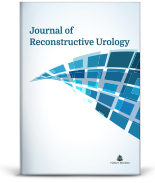Objective: To evaluate the occurrence of erectile dysfunction (ED) in patients who admit to the cardiology clinic and patients' approach to questioning of erectile status by cardiologists. Material and Methods: The present study was conducted from January 2021 to June 2021 in a prospective manner, and male patients who were admitted to the cardiology outpatient clinic were enrolled in the study. To evaluate erectile status of patients, the International Index of Erectile Function (IIEF-5) form was completed by all patients. In addition, patient opinions about discussing their sexual functions with the cardiologist were evaluated with 4 different options and expectations of patients with ED from the cardiologist were analyzed with five questions. Results: Eventually, 210 patients with mean age 58.3 years were enrolled in the study. In total, 128 (60.9%) patients had IIEF score <21, and 82 (39.1%) patients had IEFF score ≥22. As a result of questioning sexual functions by cardiologists, 12 (5.7%) of the patients felt uncomfortable and 17 (8.1%) patients thought that the cardiologist could not help in this regard. However, 98 (46.7%) patients were satisfied with cardiologist's questioning of sexual functions. However, most patients (94 of 128 patients, 73.4%) reported a negative opinion about the participation of a nurse who specialized in sexual problems during cardiology examination. Conclusion: Our study demonstrated that three out of 5 patients admitted to the cardiology clinic had various levels of undiagnosed ED. In addition, the present study found that patients were satisfied with questioning about ED by a cardiologist.
Keywords: Cardiology; erectile dysfunction; International Index of Erectile Function score
Amaç: Bu çalışmanın amacı, kardiyoloji kliniğine başvuran hastalarda erektil disfonksiyon (ED) oluşumunu ve kardiyologların hastaların erektil durum sorgulamasına yaklaşımını değerlendirmektir. Gereç ve Yöntemler: Bu çalışma, Ocak 2021-Haziran 2021 tarihleri arasında prospektif olarak yürütüldü ve kardiyoloji polikliniğine başvuran erkek hastalar çalışmaya dâhil edildi. Hastaların erektil durumunu değerlendirmek için tüm hastalara Uluslararası Erektil Fonksiyon İndeksi [International Index of Erectile Function (IIEF-5)] formu dolduruldu. Ayrıca hastaların kardiyolog ile cinsel fonksiyonlarını tartışmaya yönelik görüşleri 4 farklı seçenek ile değerlendirilmiş ve ED'li hastaların kardiyologdan beklentileri 5 soru ile analiz edilmiştir. Bulgular: Sonuç olarak ortalama yaşı 58,3 olan 210 hasta çalışmaya alındı. Toplamda 128 (%60,9) hastanın IIEF skoru <21 ve 82 hastanın (%39,1) IIEF skoru ≥22 idi. Kardiyologlar tarafından cinsel fonksiyonların sorgulanması sonucunda, hastaların 12'si (%5,7) rahatsızlık hissetti ve 17'si (%8,1) kardiyoloğun bu konuda yardımcı olamayacağını düşündü. Ancak 98 (%46,7) hasta kardiyologların cinsel fonksiyonları sorgulamasından memnundu. Ayrıca hastaların çoğu (128 hastanın 94'ü, %73,4) cinsel sorunlar konusunda uzmanlaşmış bir hemşirenin, kardiyoloji muayenesine katılması konusunda olumsuz görüş bildirmiştir. Sonuç: Çalışmamız, kardiyoloji polikliniğine başvuran 5 hastadan 3'ünün çeşitli düzeylerde tanı konmamış ED'ye sahip olduğunu göstermiştir. Ek olarak bu çalışma, hastaların bir kardiyolog tarafından ED hakkında soru sormaktan memnun olduklarını göstermiştir.
Anahtar Kelimeler: Kardiyoloji; erektil disfonksiyon; Uluslararası Erektil Fonksiyon İndeksi skoru
- Krzastek SC, Bopp J, Smith RP, Kovac JR. Recent advances in the understanding and management of erectile dysfunction. F1000 Res. 2019;8:F1000 Faculty Rev-102. [Crossref] [PubMed] [PMC]
- Johannes CB, Araujo AB, Feldman HA, Derby CA, Kleinman KP, McKinlay JB. Incidence of erectile dysfunction in men 40 to 69 years old: longitudinal results from the Massachusetts male aging study. J Urol. 2000;163(2):460-3. [Crossref] [PubMed]
- Mobley DF, Khera M, Baum N. Recent advances in the treatment of erectile dysfunction. Postgrad Med J. 2017;93(1105):679-85. [Crossref] [PubMed]
- Kloner RA, Jarow JP. Erectile dysfunction and sildenafil citrate and cardiologists. Am J Cardiol. 1999;83(4):576-82, A7. [PubMed]
- Burchardt M, Burchardt T, Baer L, Kiss AJ, Pawar RV, Shabsigh A, et al. Hypertension is associated with severe erectile dysfunction. J Urol. 2000;164(4):1188-91. [Crossref] [PubMed]
- Rhoden EL, Telöken C, Sogari PR, Vargas Souto CA. The use of the simplified International Index of Erectile Function (IIEF-5) as a diagnostic tool to study the prevalence of erectile dysfunction. Int J Impot Res. 2002;14(4): 245-50. [Crossref] [PubMed]
- Desai M, Naik G, Kamat US, Cacodcar JA. Concurrence of erectile dysfunction and coronary artery disease among patients undergoing coronary angiography at a tertiary Medical College Hospital in Goa. Indian Heart J. 2020;72(2):123-5. [Crossref] [PubMed] [PMC]
- Nicolai MP, van Bavel J, Somsen GA, de Grooth GJ, Tulevski II, Lorsheyd A, et al. Erectile dysfunction in the cardiology practice-a patients' perspective. Am Heart J. 2014;167(2):178-85. [Crossref] [PubMed]
- Shamloul R, Ghanem HM, Salem A, Elnashaar A, Elnaggar W, Darwish H, et al. Correlation between penile duplex findings and stress electrocardiography in men with erectile dysfunction. Int J Impot Res. 2004;16(3):235-7. [Crossref] [PubMed]
- Perelman M, Edward D. Perceptions of Erectile Dysfunction Therapy and Acceptance of an Orodispersible Phosphodiesterase Type 5 Drug Formulation Among Patients and Physicians: ISMH World Congress 2010 Abstract 137. Journal of Men's Health. 2010;3(5):325. [Crossref]
- Giuliano F. Phosphodiesterase type 5 inhibition in erectile dysfunction: An overview. European Heart Journal Supplements. 2002;4: 7-12. [Crossref]
- Rodler S, von Büren J, Buchner A, Stief C, Elkhanova K, Wülfing C, et al. Epidemiology and treatment barriers of patients with erectile dysfunction using an online prescription platform: A cross-sectional study. Sex Med. 2020; 8(3):370-7. [Crossref] [PubMed] [PMC]







.: Process List